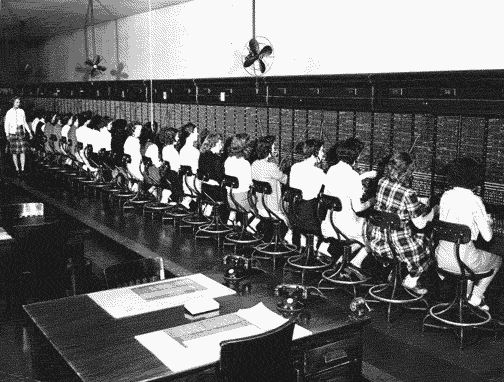I'm busy, you're busy and that's why this post is going to be a short one - we need to fight back against long hold times and move into the future with customer-focused communication from businesses. Let's take a look at the facts and history of the 1-800 number and why things need to change.
The History of the 1-800 Number
The 1-800 number was invented in 1967 by AT&T, before that calls that were to be billed to the company had to be placed manually through the telephone company. Truthfully, this was a huge leap forward and it resulted in a massive time (and costs) savings for the company since it freed up the time from thousands of telephone system operators.
Over time though, as companies updated their electro-mechanical switching systems to computerized ones it allowed a more sophisticated routing system inside of large businesses. AT&T engineer Roy P. Weber patented the "Data Base Communication Call Processing Method" which AT&T began deploying to customers in 1982 and that created the modern mess that we have now.
Personally, I don't fault the engineers who created the technology - these advances were fundamentally positive things, but look what's happened since ...

Facts About Being On Hold
- 53% of Americans say they spend 10-20 minutes on hold every week - this adds up to 13 hours annually
- 86% of consumers say they are put on hold any time they call a business
- 71% of people are extremely annoyed when they can't get a live person to talk to.
- It's estimated that bad customer service calls cost Americans $108 billion dollars a year
So, What's the Future of Customer Service?
With mobile phones and internet becoming deeply ingrained in the American consumer's daily life it's time to try something different. For instance, making a call is now the sixth most common use for a mobile phone - texts, emails, internet, and the clock rank higher!
Some companies are changing for the better, including Coca-Cola who saw a 40% year-over-year reduction in calls after launching virtual assistants with escalation to chat capabilities. They aren't alone though, 75 percent of consumers said they would use online support if it were reliable.
I can tell you from my experience previously working at some of the largest e-commerce companies - the tide has switched. When the flowers hit the fan, people reach out on social media and email and expect service. They don't want to wait on the phones ... even when companies have invested massive resources into delivering the best possible call center experience.
ATT invented the 800 number, this group wanted to bring this to light in a humorous demonstration/protest.
